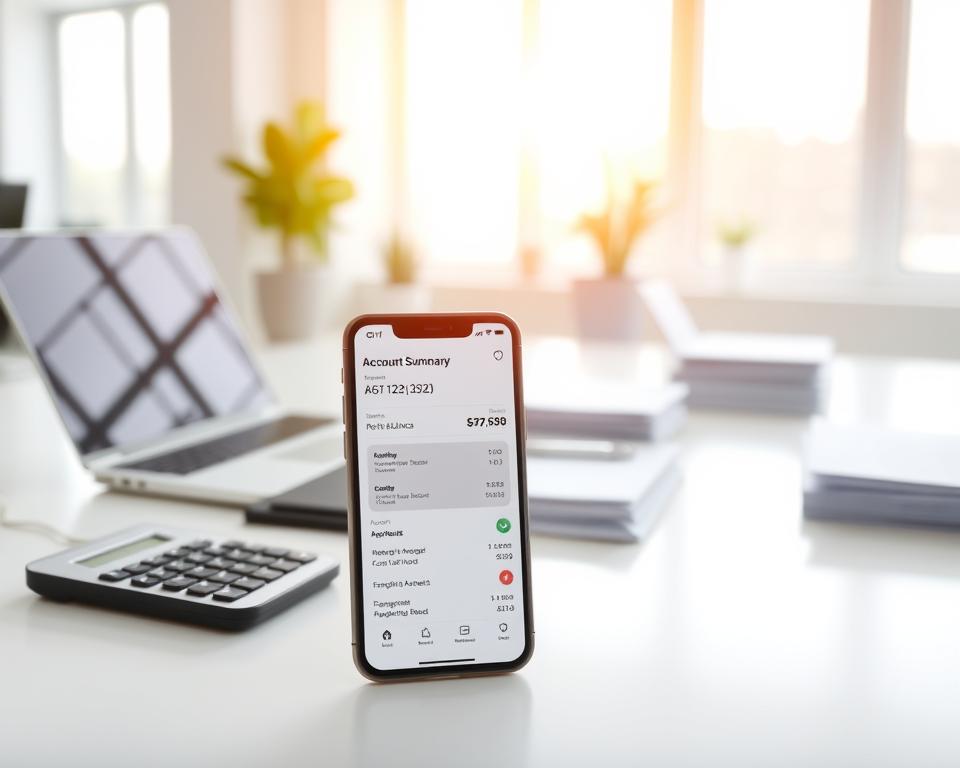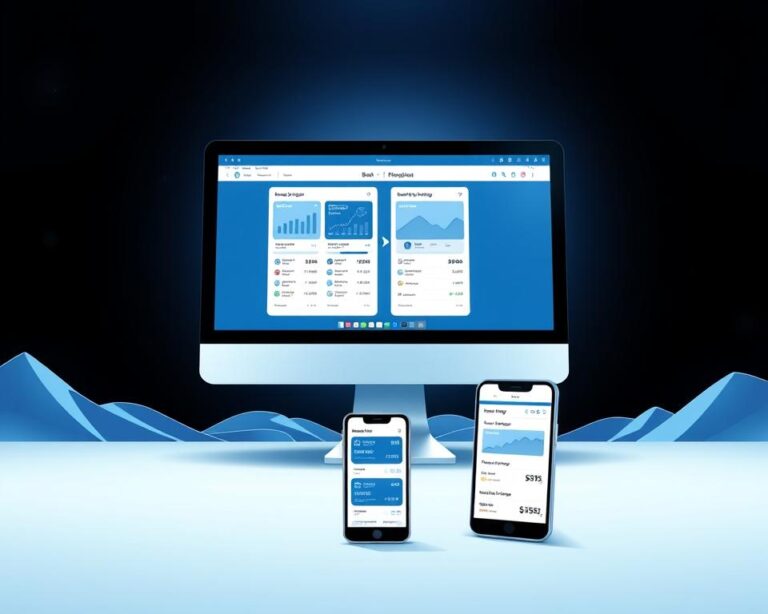Advertisement
Did you know nearly 7% of American households changed their primary bank account in the past year? This shows more people are looking for better banking options. Closing a bank account might seem hard, but it can be easy with the right steps.
Managing your bank account well helps avoid extra fees and problems when switching to a new bank.
Reasons to Close Your Bank Account
Knowing why you might close a bank account is key to smart money moves. High fees can eat into your savings, causing stress. Identity theft is a big worry, leading some to seek safer banking options. Others switch banks for better service or to find a bank closer to their new home.
High Monthly Fees
Many banks charge monthly fees that can hurt your savings. Looking for accounts with no or low fees is a common reason to switch banks.
Identity Theft Concerns
Identity theft is a big risk in today’s world. If you think your account might be at risk, closing it and switching banks can offer more security.
Switching to a Better Financial Institution
People often want better services and products from their bank. Banks with great interest rates, easy-to-use apps, or top-notch customer service are often the choice for those looking to upgrade.
Poor Customer Service
Poor service is a big turn-off. Customers expect quick and helpful support. If they don’t get it, they might look for a new bank.
Moving Out of State
When you move, you might need to close your bank account. Opening a new account at a bank with local branches makes banking easier in your new place.

Checking Account Status Before Closure
Before closing your bank account, it’s important to check its status. Make sure it’s in good standing to avoid unexpected fees or problems. Look for any outstanding transactions and check your balance to ensure a smooth move.
Ensure Account is in Good Standing
Check if your account has any unpaid fees or penalties. An account in good standing means no issues when closing it. This makes switching to a new bank easier.
Check for Pending Transactions
Look for any pending transactions before closing your account. This includes checks that haven’t cleared or electronic payments still processing. Handling these ensures your final balance is correct, avoiding surprises.
Review Your Balance
Reviewing your balance helps you know how much money you have to withdraw. This ensures a smooth transfer to another account. A detailed balance check prevents leaving money behind when closing your account.

Understanding Early Closure Fees
When you think about closing a bank account, knowing the costs is key. An early closure fee can be a big deal, especially if you close it soon after opening. Understanding this fee and when it’s applied can help you avoid extra charges.
What is an Early Closure Fee?
An early closure fee is a charge from banks for closing an account too soon. This usually happens within 90 to 180 days of opening. It’s to stop people from opening accounts just for the perks. Knowing about this fee helps you manage your money better.
When Do Fees Apply?
Early closure fees kick in under these conditions:
- The account is closed before the minimum holding period ends.
- You opened the account for a special offer and then closed it.
- The account doesn’t meet the bank’s service duration rules.
Always check with your bank to see when fees apply. Knowing this helps you make smart choices about your banking.
How to Close a Bank Account in 3 Easy Steps
Closing a bank account is simple if you follow a few steps. Knowing the key steps helps your account closure go smoothly. Here’s how to close your account:
Contact Your Bank
First, contact your bank. You can do this in person, by phone, or online. Let them know you want to close your account. Ask about any special needs or documents required.
Withdraw Remaining Balance
Then, take out any money left in your account. Your bank might give you cash or a check. Remember, any pending transactions could change your balance.
Obtain Written Confirmation
Last, get written or electronic proof of your account closure. This is important for your records. It proves your account is closed if any problems come up later.
Methods to Close Your Account
Understanding your options for closing an account can make the process easier. You can choose from different methods based on your comfort with technology and personal preferences. Each method has its own benefits to meet your needs.
In-Person at a Local Branch
Choosing to close your account in person can be reassuring. Going to your local branch lets you talk directly to a bank representative. They can help right away, especially if you have questions or need help with paperwork.
Make sure to bring your ID and any documents you need. This will make the process smoother.
Online Account Management
If you like convenience, you can close your account online. This way, you can request closure from home. Check your bank’s website or app for instructions, as they can vary.
Online banking is great if you prefer to avoid talking to people.
Phone Customer Service Options
Another good option is to call customer service. Many banks have a dedicated line for account closures. This is helpful if you have questions or concerns before closing your account.
Preparing for Account Closure
Getting ready to close your bank account is important. It makes the process smooth. By telling others, you avoid problems and keep your finances in order.
Notifying Automatic Payment Providers
Tell providers of automatic payments, like utility companies and subscriptions, before you close your account. This stops missed payments and keeps your accounts good. Make a list of all payments linked to your account and have other ways to pay ready.
This way, you won’t face unexpected service stops during the change.
Updating Direct Deposit Information
It’s key to update direct deposit info with employers and banks. Tell your employer about your new bank details to keep salary deposits going. You can do this through payroll or HR.
Make sure changes are made before your next pay day. This prevents delays in getting your money.
Implications of Closing a Bank Account
Closing a bank account has many implications to consider. It’s important to understand how it affects your personal finance. The biggest concern is usually the impact on your credit score, especially if you have debts or outstanding checks.
Effect on Your Credit Score
Closing a bank account usually doesn’t hurt your credit score much. Most checking or savings account closures don’t affect your score. But, if you have unpaid debts, closing your account could harm your score.
Impact on Recurring Payments
Ending a banking relationship means you need to update your automatic payments. If you don’t, you might miss payments or face penalties. It’s best to tell your service providers early to avoid any trouble.
Future Banking Relationships
Too many account closures can make it hard to get new banking services. Banks look at your account history before saying yes to new customers. So, it’s key to keep your financial record stable for better banking services later.
Steps to Take After Closing Your Bank Account
After closing your bank account, it’s important to take the right steps. First, choose a new bank that fits your financial needs. Look at fees, interest rates, and customer support. Make sure the new bank is secure and meets your requirements.
Choosing a New Bank Account
When picking a new bank, look at your options carefully. Compare different banks’ accounts, rates, and promotions. Reading reviews can also help you understand what others think, guiding your choice.
Setting Up New Payment Methods
Once you have a new bank account, set up your payments. This keeps your finances running smoothly. Update automatic payments and direct deposits to your new account. Also, tell your employer and service providers about your new bank details for easy transactions.
Common Mistakes When Closing a Bank Account
Closing a bank account might seem easy, but many people run into problems. It’s important to know these common mistakes to manage your funds well. By avoiding these issues, you can make the switch to a new bank smoothly.
Leaving Funds Behind
Many people forget to take their money when closing an account. This can cause trouble with your finances. It’s key to withdraw your balance to avoid any issues with your bank.
Ignoring Recurring Transactions
It’s easy to forget about automatic payments or subscriptions. If you don’t cancel them, you might face extra fees or missed payments. Make sure to check and update these to keep your finances stable.
How to Close a Bank Account Properly
To close a bank account right, you need to follow some key steps. First, check if you really need to close the account. Make sure there are no outstanding transactions or automatic payments.
It’s important to talk directly to your bank. You can visit a branch, call customer service, or use online options. This ensures everything is handled correctly.
Once you start the closure process, keep records that show the account is closed. This helps avoid any future problems. Taking these steps helps you feel secure and keeps your finances stable.
Benefiting from Financial Education
Financial education is key to making smart choices about money. It helps people understand their rights and the details of financial products. This knowledge makes it easier to deal with fees and manage accounts.
Understanding Banking Policies
Knowing banking policies is crucial for everyone with an account. It prevents surprises from unexpected fees or penalties. Good financial knowledge lets people pick the right products for their goals. This makes banking safer and more reliable.
Evaluating Your Financial Options
Looking at different financial options helps find the best accounts. With so many choices, comparing can save money and improve service. Using financial education helps match choices with long-term goals.
Conclusion
Closing a bank account is more than just a task. It’s a crucial step that needs careful thought and action. Knowing what to do when closing an account is key to making smart choices. This ensures your financial future is secure.
This article has given you the tools to close your account smoothly. You’ve learned how to prepare and what to expect. The right steps can make the transition to new banking solutions easy.
A well-planned account closure can open doors to better financial opportunities. Follow the steps outlined and think about your long-term goals. This will help you move forward in a positive way.



